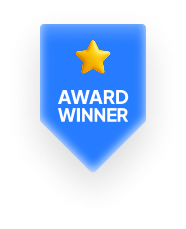Outsourcing logistics and supply chain tasks to a third-party provider or 3PL have become more common. Outsourced operations typically include a mix of shipping, storing, packing and/or delivering of goods—raw materials to the finished product.
Outsourcing logistics and supply chain tasks to a third-party provider or 3PL have become more common. Outsourced operations typically include a mix of shipping, storing, packing and/or delivering of goods—raw materials to the finished product.
We ranked the best 3PLs using real customer reviews, service quality, and industry expertise. Our team analyzes each provider’s pricing, fulfillment speed, accuracy, and warehouse locations to match businesses with top-performing 3PLs. Only the most reliable, efficient, and well-rated providers make our list.


Temperature controlled 3PL storage costs significantly more than ambient storage due to specialized infrastructure requirements. Refrigerated storage (35-45°F) typically costs $1.20-$2.50 per cubic foot/month, while frozen storage (0-10°F) ranges from $1.80-$3.50 per cubic foot/month. Ultra-low freezer storage (-80°F) can cost $4-$8 per cubic foot/month. Additional fees include temperature monitoring ($0.10-$0.25 per cubic foot), specialized handling ($0.50-$1.50 per unit), and cold chain shipping premiums of 25-75% above standard rates. Setup costs for temperature mapping and qualification range from $2,000-$10,000. Energy surcharges may apply during peak demand periods. Fulfill.com helps you find temperature controlled 3PLs with competitive pricing and proper certifications.
Premier temperature controlled hubs include Chicago (largest cold storage market), Los Angeles/Long Beach (import gateway for frozen foods), Atlanta (Southeast distribution), and Philadelphia/New Jersey (Northeast density). Dallas, Memphis, and Kansas City serve as central distribution points with excellent rail and truck networks. Cold storage facilities in these locations benefit from established infrastructure, skilled technicians, and proximity to major food processors. Many facilities near ports specialize in imported temperature sensitive goods. The Pacific Northwest (Seattle/Portland) excels in fresh produce distribution, while Florida hubs serve Latin American imports. Most temperature sensitive brands use multiple locations to maintain cold chain integrity across regions.
Temperature controlled 3PLs must maintain multiple certifications including SQF (Safe Quality Food), BRC (British Retail Consortium), and HACCP (Hazard Analysis Critical Control Points) compliance. FDA registration is essential for food and pharmaceutical products. Key capabilities include validated temperature mapping, 24/7 monitoring with alarmed systems, backup power generation, and detailed temperature logging with 2+ year retention. They should offer multiple temperature zones (ambient, refrigerated, frozen, ultra-low), cross-docking without temperature breaks, and specialized equipment like blast freezers. USDA inspection capabilities, organic certification handling, and kosher/halal compliance are valuable for food products. Look for facilities with less than 0.5°F temperature variance and 99.9%+ uptime records.
Professional temperature controlled 3PLs implement comprehensive cold chain management including redundant refrigeration systems, backup power with automatic switchover, and continuous temperature monitoring with real-time alerts. They use validated thermal packaging, pre-conditioned vehicles, and coordinated handoffs to maintain temperature integrity during transportation. Advanced facilities employ thermal mapping, regular calibration of monitoring equipment, and strict personnel training protocols. They provide detailed temperature logs, deviation reports, and certificates of compliance for each shipment. Many use IoT sensors, blockchain tracking, and predictive maintenance systems to prevent temperature excursions that could compromise product quality and safety.
Temperature sensitive products require specialized carriers including refrigerated LTL providers (Linehaul Logistics, Total Quality), dedicated refrigerated trucking, and temperature controlled parcel services (FedEx Cold Ship, UPS Temperature True). Transit times vary by service level: next-day for critical pharmaceuticals, 2-3 days for most refrigerated goods, and up to 5 days for frozen products with proper packaging. International shipments use air freight with temperature controlled containers and ground handling. Many 3PLs coordinate white-glove delivery for high-value temperature sensitive items. Seasonal shipping restrictions may apply during extreme weather, requiring alternative routing or enhanced packaging solutions.
Temperature controlled 3PLs specialize in diverse categories each requiring specific protocols. Food products need FIFO rotation, lot tracking, and expiration date management with automated alerts for short-dated inventory. Pharmaceuticals require USP storage conditions, serialization tracking, and validated distribution processes. Biologics need ultra-low storage, chain of custody documentation, and specialized handling protocols. Cosmetics require stable temperatures to prevent separation or crystallization. Many facilities offer value-added services like co-packing frozen meals, fresh produce ripening rooms, and pharmaceutical repackaging under controlled conditions. Each category demands specific regulatory compliance, handling procedures, and quality control measures.
Critical technology for temperature controlled 3PLs includes wireless monitoring systems with cloud-based dashboards, automated alert systems for temperature deviations, and integration with WMS for inventory tracking by temperature zone. Essential features include automated expiration date management, FIFO enforcement, and lot tracking capabilities. Advanced systems offer predictive maintenance for refrigeration equipment, energy optimization algorithms, and mobile apps for real-time monitoring. They should provide customer portals with temperature history access, compliance reporting tools, and integration with regulatory databases. Many use AI-powered analytics to optimize energy consumption while maintaining strict temperature requirements and ensuring product integrity.
Fulfill.com specializes in matching businesses with certified temperature controlled 3PLs that meet strict quality and compliance standards. We verify current certifications (SQF, BRC, FDA), evaluate temperature monitoring capabilities, and assess backup system reliability. Our platform identifies 3PLs with appropriate temperature ranges for your products, proper insurance coverage, and proven track records in your industry. We consider factors like geographic coverage, shipping carrier relationships, and value-added services specific to temperature sensitive products. Whether you need pharmaceutical-grade cold chain management, frozen food distribution, or fresh produce handling, we connect you with 3PLs that maintain the highest standards for temperature controlled logistics.